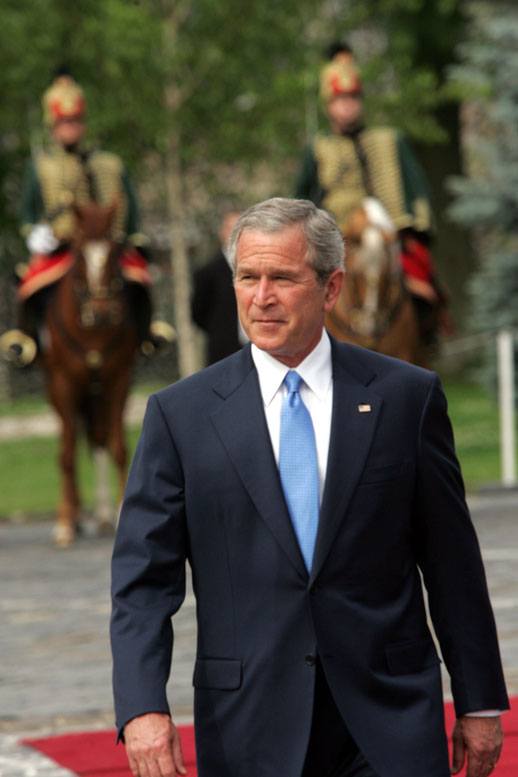
Mr.Kessler tries to convince his readers—with mixed results—that contrary to the popular notion that President Bush loved to party, was not serious about his studies, or is less than intelligent, the President is, in actuality, a thoughtful, decisive intellectual who runs the country and his administration in an efficient manner like a CEO of a major company.
In subsequent chapters, Mr. Kessler deals with the legislation and policies of the Bush administration, including the No Child Left Behind Act, The Preemption Doctrine, and Iraq. President Bush's character, Mr. Kessler argues, influenced the way these issues were approached. Mr. Kessler asserts that President Bush is principled and proposes legislation based on his character rather than by what is politically expedient, as did President Clinton. However, consistently throughout the book, Mr. Kessler avoids any discussion of the President's flaws. Administration mistakes are lightly brushed off as misspoken words, statements that were taken out of context, lack of action to educate the public on the part of the administration, oversights, or just plain misunderstandings by the media.
Mr. Kessler refutes the accusations that President Bush is a right-wing conservative and claims that the President took traditionally liberal issues, such as education, and implemented legislation to make meaningful changes in this area. President Bush worked on education issues when he was a governor and took up the challenge when he became President. Spurred by his success in Texas, the President focused on trying to raise the reading scores of the nation's schoolchildren. When President Bush went to Washington, Mr. Kessler points out, his major goal was reforming education. In enacting the No Child Left Behind Act, Mr. Kessler notes, President Bush worked with Senator Kennedy from Massachusetts. The President cared for education and was no ideologue; he was even prepared to work with a liberal senator to accomplish meaningful change in education.
A Matter of Character also contrasts President Bush's treatment of White House staff, reporters, secret service agents, and members of his cabinet with that of other former Presidents, especially President Clinton. President Bush is civil and cordial with the White House staff, runs the White House with "dignity" and decorum, and requires absolute loyalty from his staff. In contrast, Mr. Kessler argues, former President Clinton and Hillary Clinton were "arrogant," "standoffish," and "paranoid," and Clinton's administration was unprofessional, treating the White House as a fraternity club, rather than giving it the respect and dignity it deserved.
Mr. Kessler also claims that President Bush took more action on democratic ideals in terms of race and gender than liberal Presidents. Where Democrats paid lip service to the ideals of gender and racial equality, Mr. Kessler asserts, President Bush took noticeable action. Condoleezza Rice was the first woman and first African-American to be appointed National Security Advisor. President Bush also appointed various women to top posts in his administration; Margaret Spellings as his Domestic Policy Advisor; Karen Hughes as Special Advisor to the President; and Dina Hibib Powell as Chief of Presidential Personnel. President Bush also appointed men of color to top posts in his administration, including Colin Powell as the first African-American Secretary of State, and Alberto Gonzales, a Hispanic, as the President's White House counsel. These actions by the President, Mr. Kessler posits, counter the notion that the President is a right-wing racist.
Overall, Mr. Kessler does a good job of showing the effect of the President's character on issues such as the Iraq war, education and healthcare. However, rather than just laying out the President's actions, Mr. Kessler attacks everybody who disagrees with the President. Each perceived strength of character of the President is inevitably followed by a nasty dig of former, mostly Democratic, presidents, Hillary Clinton, the liberal media, and/or the Democrats in Congress. A more effective technique would have been presenting the current president's character without the duplicitous agenda of bashing liberals. The book also would have benefited from acknowledging and addressing the President's weaknesses and policy blunders, rather than completely ignoring them.
Mr. Kessler is the best-selling author of 14 nonfiction books, including Inside the White House, The Bureau, and The CIA at War. The former reporter for The Wall Street Journal and The Washington Post has won 16 journalism awards, including two George Polk awards — one for national reporting and one for community service.



